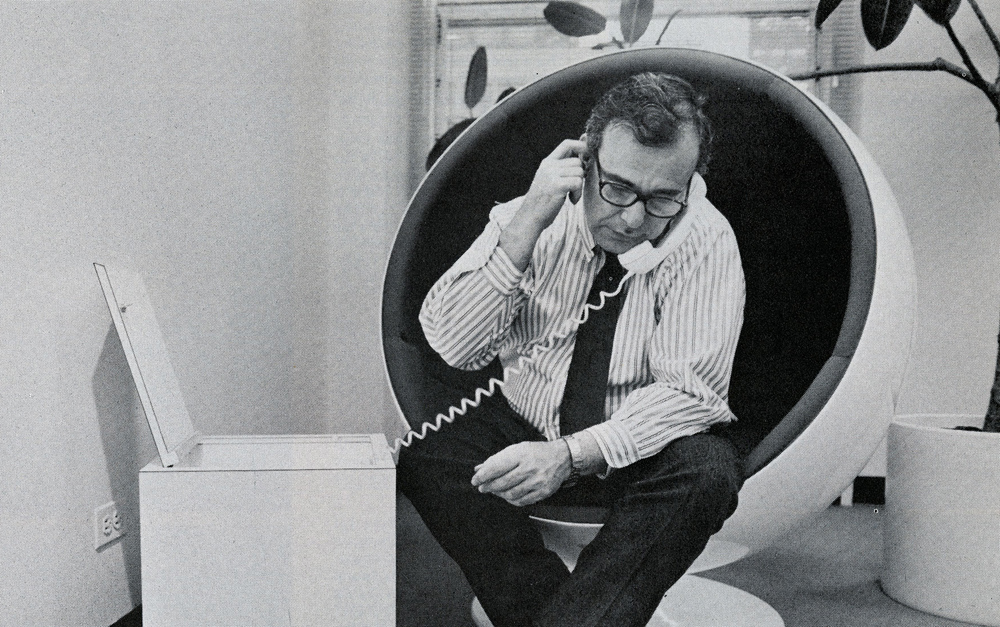“I don’t get it, but I like it,” Robert Downey Sr. recalls Donald Rugoff telling him after a buyers’ screening of his irreverent “Putney Swope” in “Searching for Mr. Rugoff,” quickly snapping up the rights to the film and putting it in his arthouse theater chain in New York where it began its march to becoming a counter-culture classic. The film’s arresting ad campaign, which prominently featured a willowy woman standing in for a middle finger on a hand in position to flip the bird, would inspire the advertising firm behind “M*A*S*H” to design a similar focal point for their rollout en route to a Best Picture Oscar and the guerrilla marketing tactics that made the film an event, going so far as to invite the infamous flasher from the film to standing out in the lobby, would be mimicked and refined for decades to come.
Yet as director Ira Deuchtman laments time and again throughout the film about his former boss at Cinema 5, the innovative arthouse theater chain that came to distribute some of the greatest world cinema of the 1960s and ‘70s in the U.S., few know of Rugoff now, having burned so many bridges on the way to losing control over his company that he died in virtual obscurity, retreating from the city to live out his quiet final days in Martha’s Vineyard. In fact, it was only when the late Dan Talbot of New Yorker Films received the kind of career honor at the Gotham Awards from his peers that Rugoff never would and mentioned in his speech hearing that his former professional rival had hollowed out a church in Edgartown, Massachusetts to turn it into a cinema that Deutchman, himself a legendary figure within the film community as a producer’s rep who would spearhead Fine Line Features, thought to see what had become of him when a Google search yielded no results.
“Searching for Mr. Rugoff” has an initially awkward set-up, with Deutchman presenting himself as he would any other interviewee when the film is clearly personal to him, but he tells a complicated story with considerable grace, profiling a brilliant businessman he recalls having to keep two secretaries on at all times when one would often quit at the drop of a hat due to his anger and unpredictability. Other former employees describe Rugoff as someone without class, but impeccable taste, not only having the foresight to champion filmmakers such as Costa-Gavras and Lina Wertmuller (both of whom appear in the film), but relentlessly finding ways to build a trusted brand for them and Cinema 5 as a whole that could lure audiences to the kinds of films they might not know they wanted, creating the template for such future distributors as Miramax and A24.
Even if Rugoff weren’t a one-of-kind figure giving all those Deutchman talks to spirited stories to share, there’s never been anything quite like “Searching for Mr. Rugoff” that comprehensively documents this exciting period when documentaries and foreign-language films broke through to become part of the American cinematic diet through the efforts of innovators such as Rugoff (only Toby Talbot’s 2009 memoir “The New Yorker Theater” immediately comes to mind) and the film captures the enthusiasm and ingenuity that defined the era in moviegoing. Although bringing this moment in time to vivid life would be invaluable enough, the film provides intrigue for those who aren’t necessarily interested in this history when “Searching for Mr. Rugoff” subtly becomes about history itself, with Deutchman locating more than enough colleagues and contemporaries of Rugoff to create a definitive portrait and build a compelling case for how Rugoff shifted the film business for the better, but finds in just as many interviews why that consideration will likely never happen in a larger way when few are compelled to keep the memory of his professional achievements alive when it’s his personal shortcomings they remember first.
At a time when there is less and less separation between the two, “Searching for Mr. Rugoff” turns into a cautionary tale as much as a revelation, chronicling a crucial figure in the development of arthouse cinema in America whose accomplishments that led to the films we see and the way we see them today are likely being actively forgotten. Still, while Rugoff may not have entirely enjoyed “Searching for Mr. Rugoff” based on how he’s portrayed, as his son Ed mentions, “He loved documentaries, or anything based on a true story,” and you get the sense that he surely would’ve appreciated it as a captivating film, which as Deutchman makes clear is what he valued above all else.
“Searching for Mr. Rugoff” does not yet have U.S. distribution.




